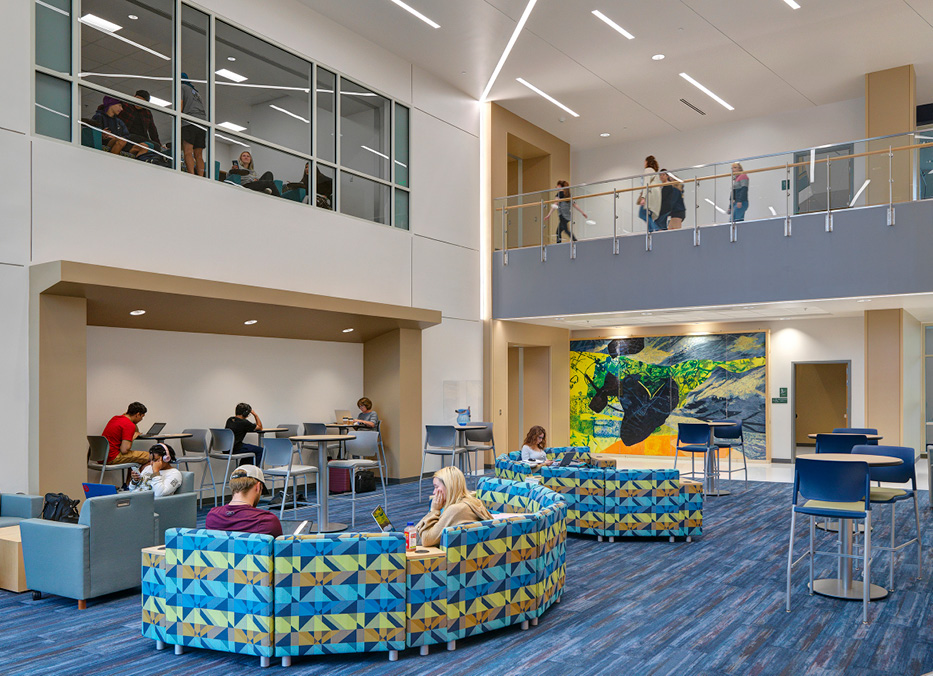
Central Piedmont Community College’s new Levine III facility recently earned the Green Building Certification Institute’s Leadership in Energy and Environmental Design (LEED®) Silver certification, making it the college’s first LEED-certified building. Completed in 2019, the 85,000-square-foot facility houses an academic center, math emporium, library, offices, as well as the Georgia Tucker Fine Arts Hall.
Located on CPCC’s Levine Campus in Matthews, NC, the facility was constructed as a part of a $22 million project that included an addition to the adjoining Levine II building. The bond-funded campus expansion established spaces for programs, such as health care studies, that the college determined are the most needed to support the area’s economy.
Laura Eubanks, sustainability coordinator for Moseley Architects, helped incorporate sustainable features into the site and building design.
“We are really excited about the water savings potential. The building is designed to use 40% less water than baseline as a result of efficient plumbing fixtures and fittings. This could save an estimated 158,820 gallons per year.”
Laura Eubanks, Sustainability Coordinator
Stephanie Cooper, managing principal for the project, shares Laura’s enthusiasm.
“We enjoyed partnering with Central Piedmont on their first LEED-certified project. I am proud of the fact that we were able to incorporate strategies that will help CPCC realize operational savings.”
Stephanie Cooper, Managing Principal
Environmentally responsible building practices began as soon as the project broke ground. Twenty-one percent of building materials were manufactured within 500 miles of campus, which reduced air pollution during transport in addition to supporting the local economy. Waste management strategies diverted 76% of construction waste, equal to 754 tons, from landfills.
The building’s sustainable features include:
- Building systems designed to achieve an energy cost savings of 30%, estimated to save $28,674 per year
- Low-emitting (low VOC) adhesives, sealants, paints, coatings, flooring systems and composite wood products to improve air quality
- Highly reflective roofing material to reduce heat absorption
- Preferred parking spaces reserved for low-emitting and fuel-efficient vehicles
- Green housekeeping and integrated pest management policies to avoid the use of pesticides
This project contributes to Moseley Architects’ extensive portfolio of sustainable design in higher education facilities. The firm has provided architecture and engineering services for more than 150 buildings encompassing more than 8.7 million gross square feet on college and university campuses. The firm’s high performance projects have resulted in a total annual savings of $5.87 million.